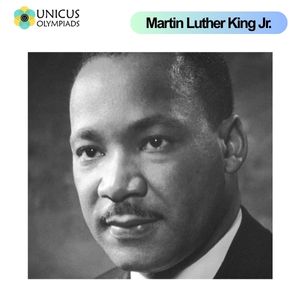

Speeches have the power to inspire, rally, and provoke change. Some speeches transcend their time and place, becoming iconic symbols of broader movements and ideals. One of the most influential speeches in history is Dr. Martin Luther King Jr.'s "I Have a Dream" speech, delivered on August 28, 1963, during the March on Washington for Jobs and Freedom. This speech, along with others in history, became influential because of the powerful messages they conveyed, their emotional resonance, their timely delivery, and their ability to ignite collective action. This article will explore the reasons why speeches like "I Have a Dream" have had such a lasting impact on social, political, and cultural movements around the world.

The "I Have a Dream" speech was delivered by Dr. Martin Luther King Jr. in front of over 250,000 people gathered on the steps of the Lincoln Memorial in Washington, D.C. The speech took place during the March on Washington for Jobs and Freedom, a pivotal event in the American Civil Rights Movement. At the time, racial segregation and discrimination were deeply entrenched in U.S. society, particularly in the southern states, where Jim Crow laws institutionalized racism. King, a leader in the movement, had already gained national recognition for his nonviolent approach to civil rights activism, but this speech elevated his message and the movement to unprecedented heights.
The 1960s was a decade of significant social and political change in the United States, particularly regarding civil rights for African Americans. The African American community had been subjected to centuries of slavery, segregation, and discrimination, and the Civil Rights Movement was gaining momentum in its quest for equality. At this time, major civil rights legislation was being debated, including the Civil Rights Act of 1964 and the Voting Rights Act of 1965. King’s speech spoke directly to these issues, calling for racial equality, an end to segregation, and economic justice.
Dr. King’s "I Have a Dream" speech is remembered not only for its eloquence and moral clarity but also for the deeply held values it articulated. These values, such as equality, justice, freedom, and nonviolence, resonated with millions of people, not just in the U.S. but around the world. Here, we explore some of the key values expressed in the speech and why they became so influential.
One of the central messages of the speech was the call for equality. Dr. King dreamt of a world where people would be judged not by the color of their skin but by the content of their character. This was a direct challenge to the entrenched racial segregation and discrimination of the time. The call for equality in the speech became a universal message that transcended racial lines and resonated with marginalized communities worldwide.
Dr. King’s commitment to nonviolence was a cornerstone of his philosophy and activism. Throughout his career, King advocated for peaceful protests, direct action, and civil disobedience in the face of injustice. His speech reinforced this commitment, calling for change through love, faith, and unity rather than through violence or hatred.
The “I Have a Dream” speech is a powerful expression of the desire for freedom and justice. King articulated a vision for a world where African Americans could enjoy the same freedoms and opportunities as white Americans, free from oppression, segregation, and discrimination. The speech framed the Civil Rights Movement as not only a fight for racial equality but also for the broader ideals of justice and freedom.
Despite the struggles and injustices that African Americans faced, King’s speech is filled with hope and optimism. He envisioned a future where people of all races and backgrounds could live together harmoniously. The imagery of a future where “every valley shall be exalted, every hill and mountain shall be made low” filled his speech with hope for a better tomorrow, one in which equality and justice would prevail.
The rhetorical power of King’s speech cannot be overstated. His ability to use language to evoke powerful imagery and emotions was a key factor in the speech’s lasting impact. King’s masterful use of repetition, parallelism, and metaphor created a sense of urgency and moral clarity, elevating the speech to an iconic status.
One of the most powerful rhetorical devices used by King was repetition. The repeated phrase “I have a dream” not only created a rhythmic flow but also reinforced the central message of his vision for a future of racial equality. By repeating the phrase, King emphasized the urgency of his message and the clarity of his goals, creating a call for action that resonated with his audience.
King also used vivid imagery to help his audience visualize the future he dreamed of. He spoke of “the red hills of Georgia” and “the sons of former slaves and the sons of former slave owners” sitting down together at the table of brotherhood. These powerful images created a vision of a world that was just and harmonious, appealing to the emotions of his listeners and motivating them to pursue this dream.
King’s speech did not only speak to African Americans but to all Americans and even people worldwide. He framed his call for justice and equality in terms that were universally understandable. The values of freedom, justice, and equality transcend race, nationality, and time, making King’s message one that could inspire all people, regardless of background.
The “I Have a Dream” speech remains one of the most iconic speeches in American history, not only for its historical significance but also for its lasting impact on the Civil Rights Movement and subsequent movements for justice and equality. King’s words were instrumental in bringing about legislative change, including the passage of the Civil Rights Act of 1964 and the Voting Rights Act of 1965. The speech continues to be a source of inspiration for individuals and movements advocating for racial justice, equality, and human rights around the world.